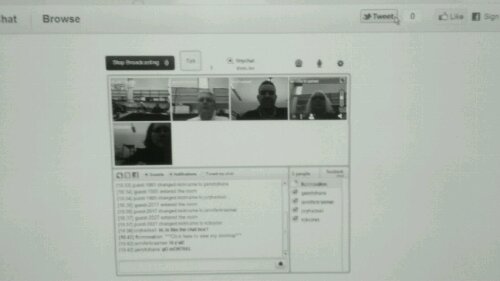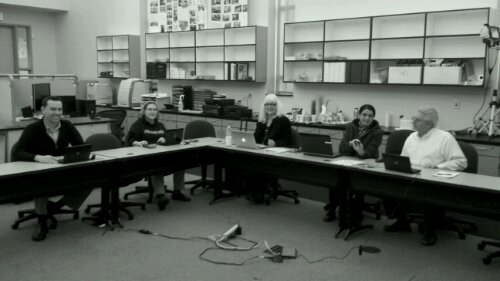This from Nicole Wooley and Jory Hadsell at SCC…
Welcome back! Hopefully you all had a restful break and a smooth first week of school. I’m emailing today as a follow up to Jory’s message before the semester began. The one in which he promised an exciting activity…with the ability to earn flex credit…to a special group of people.
Well, here it is. We’re starting a book group for SCC online educators. I’ll tell you about the book we’ve chosen in a moment. We’ll have three face-to-face meetings this semester, once a month in February, March and May. We’ll read four chapters of the book to discuss at each meeting. I’ll also create a D2L page we can use for online discussions, and where I will preview the month’s tasty treat. Side note: I’m taking baking classes this semester and I’ll need feedback so you get to be judges – just like “Cup Cake Wars.”
Our face-to-face meetings will be held:
Thursday, February 17, from 3:00 – 4:30 p.m.
Thursday, March 17, from 3:00 – 4:30 p.m.
Thursday, May 5, from 3:00 – 4:30 p.m.
Location will be determined.
For participating in this group, you’ll earn 4.5 hours of flex credit.
Our book for this semester is The World is Open by Curtis J. Bonk. I will have a few copies to loan, the SCC Library is ordering one copy, the Sacramento Pubic Library owns two copies and it’s for sale on Amazon for $19.49.
Book description: Web-based technology has opened up education around the world to the point where anyone can learn anything from anyone else at any time. To help educators and others understand what’s possible, Curt Bonk employs his groundbreaking “WE-ALL-LEARN” model to outline ten key technology and learning trends, demonstrating how technology has transformed educational opportunities for learners of every age in every corner of the globe. The book is filled with inspiring stories of ordinary learners as well as interviews with technology and education leaders that reveal the power of this new way of learning.


 In this photo: Jory Hadsell (SCC), KC Boylan (FLC), Jennifer Kraemer (FLC), Dipali Buch (FLC) and Gerry Tryhane (FLC).
In this photo: Jory Hadsell (SCC), KC Boylan (FLC), Jennifer Kraemer (FLC), Dipali Buch (FLC) and Gerry Tryhane (FLC).